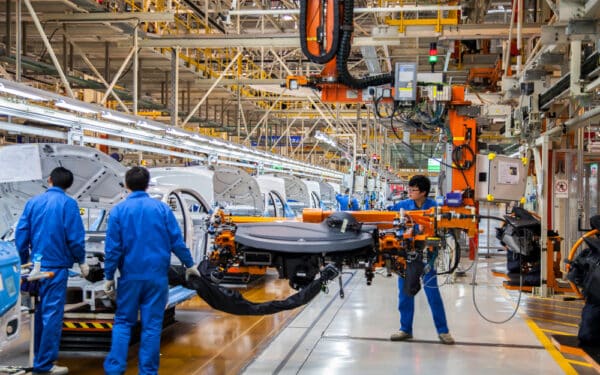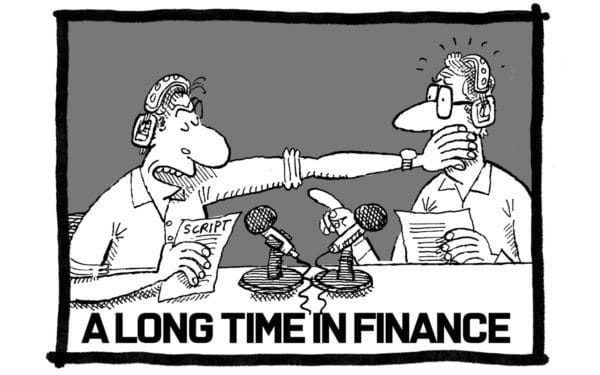Orthodoxy has many layers. Liz Truss’s plans won’t work because she and the economic advisers to whom she listens have only stripped away the most superficial of these layers.
Current economic orthodoxy suggests that there are really only two instruments of economic policy: Fiscal Policy, and Monetary Policy. Monetary Policy, notionally about the money supply, used to be determined by government. But after long periods of economic turbulence, including high inflation, a consensus emerged that Monetary Policy should be operated by an independent central bank. The government’s role would be to set an overall, simplistic target – New Zealand came up with the idea that it should be for inflation – with a central bank committee directly answerable to the government for maintaining that target.
Milton Friedman’s comment that “Inflation is always and everywhere a monetary phenomenon, in the sense that it is and can be produced only by a more rapid increase in the quantity of money than in output” became part of the orthodoxy. This year has demonstrated that Friedman wasn’t entirely right. What that means, of course, is that the central bank’s only related policy tool – varying the cost of money – is not always going to be appropriate.
A decade of economic stagnation and low productivity suggests either that contemporary Monetary Policy can’t tackle these things, or that central banks have lost the plot.
Which leaves Fiscal Policy. The apparent limitations of Monetary Policy might encourage adventurism on the part of whoever controls Fiscal Policy. Mix ideology with adventurism, and we’re back with the kind of turbulence that started all this in the 1970s.
Governments have no money of their own. To do the things they want to do, they have to extract it from the economy. They have three principal ways of doing this. Tax takes it out of business and the pockets of the population immediately. Borrowing takes it out of the pockets of tomorrow’s taxpayers. Nationalisation of industry theoretically provides a flow of income, but governments have yet to prove their credentials when it comes to running business.
It’s not wholly misguided to suggest that taking less out of the economy will foster growth. It’s just that the numbers don’t add up. Redistributing the money already in an economy will not make it grow. It needs more money.
Nineteenth century Britain did not become a global economic powerhouse because we had a brilliant government, choosing the right economic policies, supported by a prescient central bank. The country became a powerhouse because of access to finance.
And much in the way that China’s extraordinary economic development of the past thirty years has not been built on the back of the savings of Chinese workers (I remember the average wage in the 1980s, when I lived there), so Britain’s development was not built on the backs of the savings of British workers. The savings didn’t come first. The money did. It’s not so much that deposits don’t make loans: loans make deposits.
Two well respected Financial Times journalists recently suggested in writing that it’s the other way round, but more importantly you’ll find this misconception perfectly illustrated by the Royal Swedish Academy of Sciences 10 October paper on Financial Intermediation. There’s your orthodoxy.
Banks once proliferated to reach every High Street in the country. Even the Financial Times refers to them as “The Lenders”. The economy of the nineteenth and twentieth centuries grew as a function of human ingenuity, human labour, the input of raw materials – and the availability of finance. And the critical ingredient, the finance, was conjured out of thin air by the banks, by the act of lending. It’s a feat so powerful, and so potentially dangerous, that from early days it required a licence.
Which brings me to the third instrument of economic policy, the one no one talks about.
Perhaps the most important separation of powers has been the notional separation of politics and finance. This is often symbolically geographical: The City is distinct from Horse Guards Road; Wall Street is some distance from Pennsylvania Avenue. This was fine before finance became global. But once we’d moved from a plethora of financial institutions to a “system”, systemic crisis became a possibility, and then a reality.
Some control over the financial system was required, and the BIS in Basel has, for example, evolved capital adequacy standards. But for politicians to try to manage the output of the financial system has been taboo.
If they did, it would be called Financial Policy. This Country set up a Financial Policy Committee after the 2008 crisis, but its focus has been financial stability. In the name of stability, they have conducted a Financial Policy which has all but shut down the creation of new, productive money, turned the banks into the intermediaries that many wrongly believe they always have been, and drained the markets of useful liquidity.
Perhaps it might be better if the Committee was set an appropriate, simplistic target by elected politicians. We would then have three instruments of economic policy. Intelligent Financial Policy would deliver new money for productive and sustainable growth without threatening stability. It’s time we started to talk about it.




